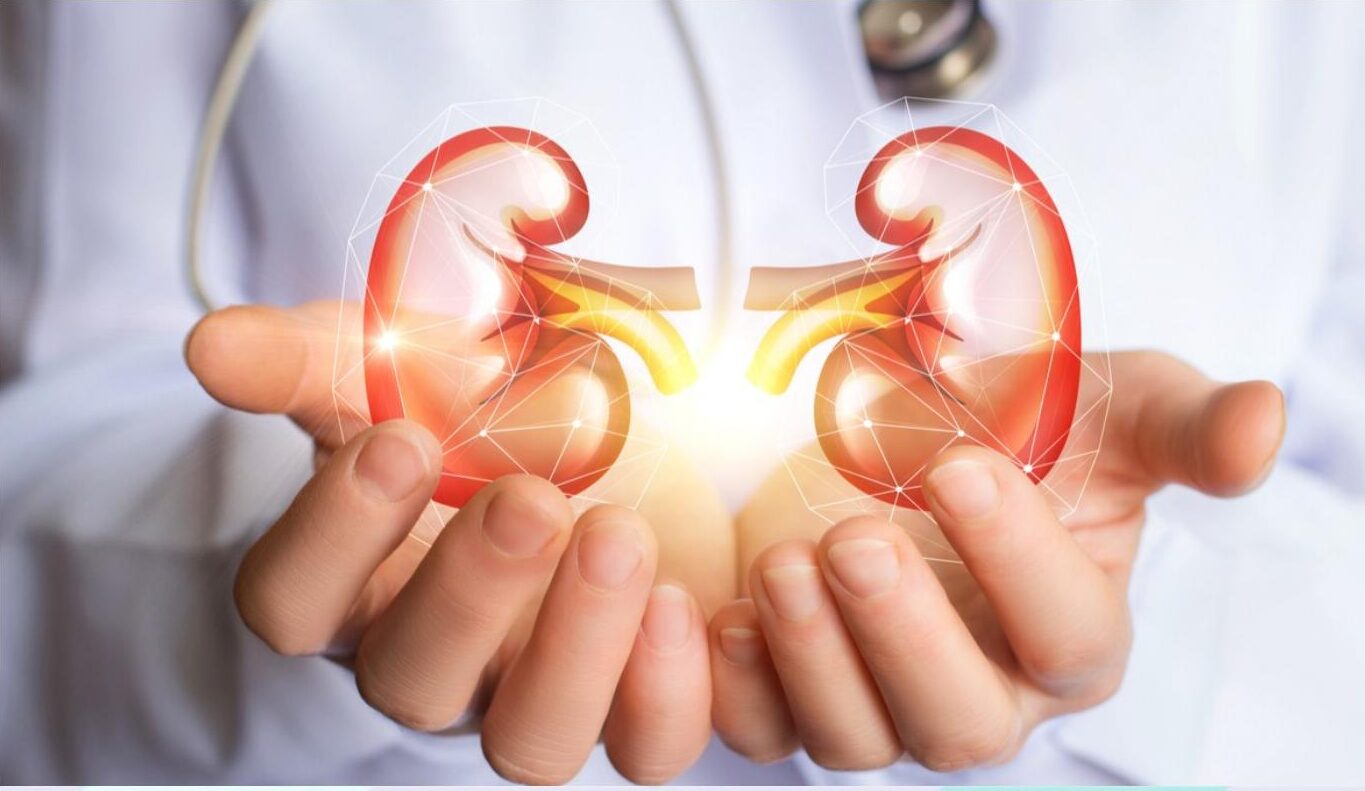Kidneys are very essential organs of the body responsible for removing waste products from the blood and producing hormones that regulate blood pressure.
These kidneys are fist-sized organs located at the bottom of the rib cage, on both sides of the spine. Most importantly, they filter waste products, excess water, and other impurities from the blood. These waste products are stored in the bladder and later expelled through urine.
They also regulate pH, salt, and potassium levels in the body. They also produce hormones that regulate blood pressure and control the production of red blood cells.
Kidneys are also responsible for activating a form of vitamin D that helps your body absorb calcium for building bones and regulating muscle function.
Therefore, maintaining healthy kidneys is important to your overall health and general well-being. They keep your body fit to filter and expel waste properly and produce hormones to help the body function properly.
The tips to help keep your kidneys healthy include:
1. Keep active and fit
Regular exercise is required for healthy kidneys. It can lower the risk of chronic kidney disease. It can also reduce your blood pressure and boost your heart health, which is both important for preventing kidney damage.
Simple exercises like walking, running, cycling, and even dancing are great for your health. Find an activity that keeps you busy and have fun. It’ll be easier to stick to it and have great results.
2. Manage your blood sugar
People with diabetes, or a condition that causes high blood sugar, may develop kidney damage. When the body’s cells can’t use the glucose (sugar) in the blood, the kidneys are forced to work extra hard to filter the blood. This can lead to life-threatening damage when it is repeated over the years.
However, if you can manage your blood sugar, you reduce the risk of damage to the kidney. Also, if the damage is discovered early, a physician can take steps to reduce or prevent additional damage.
3. Monitor blood pressure
High blood pressure can cause kidney damage. If high blood pressure occurs with other health issues like diabetes, heart disease, or high cholesterol, the impact on your body can be significant.
A healthy blood pressure reading is 120/80. Prehypertension is between that point and 139/89. Lifestyle and dietary changes may help lower your blood pressure at this point.
If your blood pressure readings are consistently above 140/90, you may have high blood pressure. You should talk with a physician about monitoring your blood pressure regularly, making changes to your lifestyle, and possibly taking medication.
4. Monitor weight and eat a balanced diet
People who are overweight or have obesity are at risk of several health conditions that can damage the kidneys. These include diabetes, heart disease, and kidney disease.
A balanced diet that’s low in sodium, processed meats, and other kidney-damaging foods may help reduce the risk of kidney damage. Therefore, focus on eating fresh ingredients that are naturally low in sodium, such as cauliflower, blueberries, fish, whole grains, and more.
5. Drink plenty of fluids
There’s no magic behind the cliché advice to drink eight glasses of water a day, but it’s a good goal precisely because it encourages you to stay hydrated. Regular, consistent water intake is healthy for the kidneys.
READ ALSO: Prolonged Fasting Can Cause Kidney Failure – NAFDAC Warns
Join our WhatsApp Channel
Water helps clear sodium and toxins from the kidneys. It also lowers your risk of chronic kidney disease.
Aim for at least 1.5 to 2 litres in a day. Exactly how much water you need depends largely on your health and lifestyle. Factors like climate, exercise, gender, overall health, and whether you’re pregnant or breastfeeding are important to consider when planning your daily water intake.
People who have previously had kidney stones should drink a bit more water to help prevent stone deposits in the future
6. Don’t smoke
Smoking damages the body’s blood vessels. This leads to slower blood flow throughout the body and the kidneys.
Smoking also puts your kidneys at an increased risk of cancer. If you smoke and stop smoking, your risk will drop. However, it’ll take many years of trusted sources to return to the risk level of a person who’s never smoked.
7. Be aware of the amount of OTC pills you take
If you regularly take over-the-counter (OTC) pain medication, you may be causing kidney damage. Nonsteroidal anti-inflammatory drugs (NSAIDs), including ibuprofen and naproxen, can damage your kidneys if taken regularly for chronic pain, headaches, or arthritis.
According to the National Kidney Foundation, these medications should not be taken for more than 10 days for pain or more than three days for fever. Regularly taking more than eight aspirin tablets each day may reduce your kidney function temporarily or permanently.
People with no kidney issues who take the medicine occasionally are safer. However, if you use these medicines daily, you could be risking your kidneys’ health. Talk with a physician about kidney-safe treatments if you’re coping with pain.
8. Have your kidney function tested if you’re at high risk
If you’re at high risk of kidney damage or kidney disease, it’s a good idea to have regular kidney function tests. The following people may benefit from regular screening:
people who are over 60 years old; born with a low birth weight; people who have cardiovascular disease or have family members with it; people who have a family history of high blood pressure; obesity; people who believe they may have kidney damage.
A regular kidney function test is a great way to know your kidney’s health and to check for possible changes. Getting ahead of any damage can help slow or prevent future damage.



![Relishing Ugba [Oil Bean] Delicacy](https://www.primebusiness.africa/wp-content/uploads/2025/06/Ugba-delicacy-720x480.jpg)












Follow Us